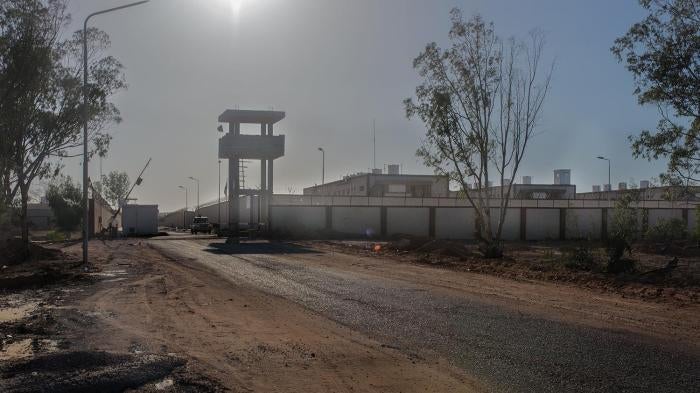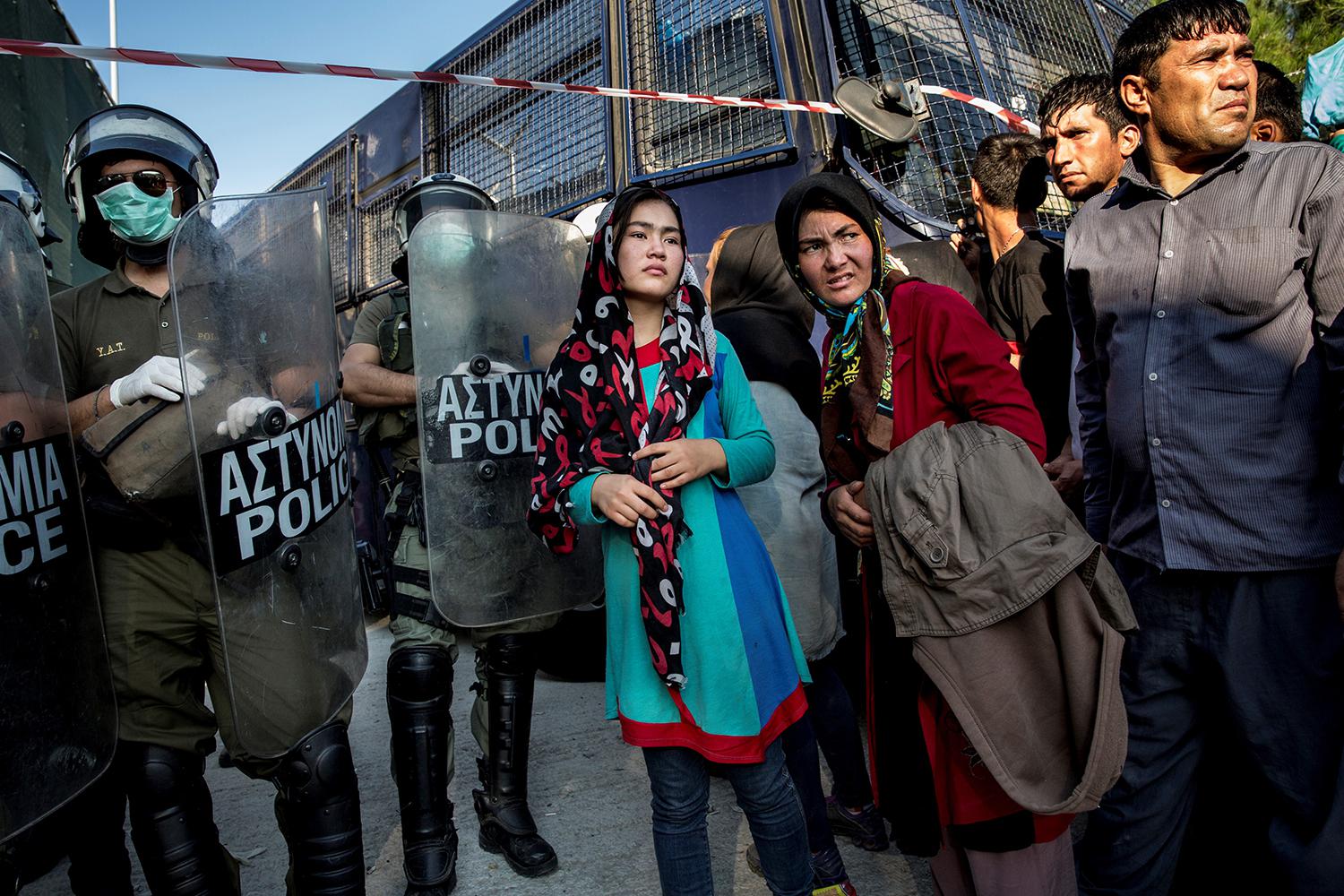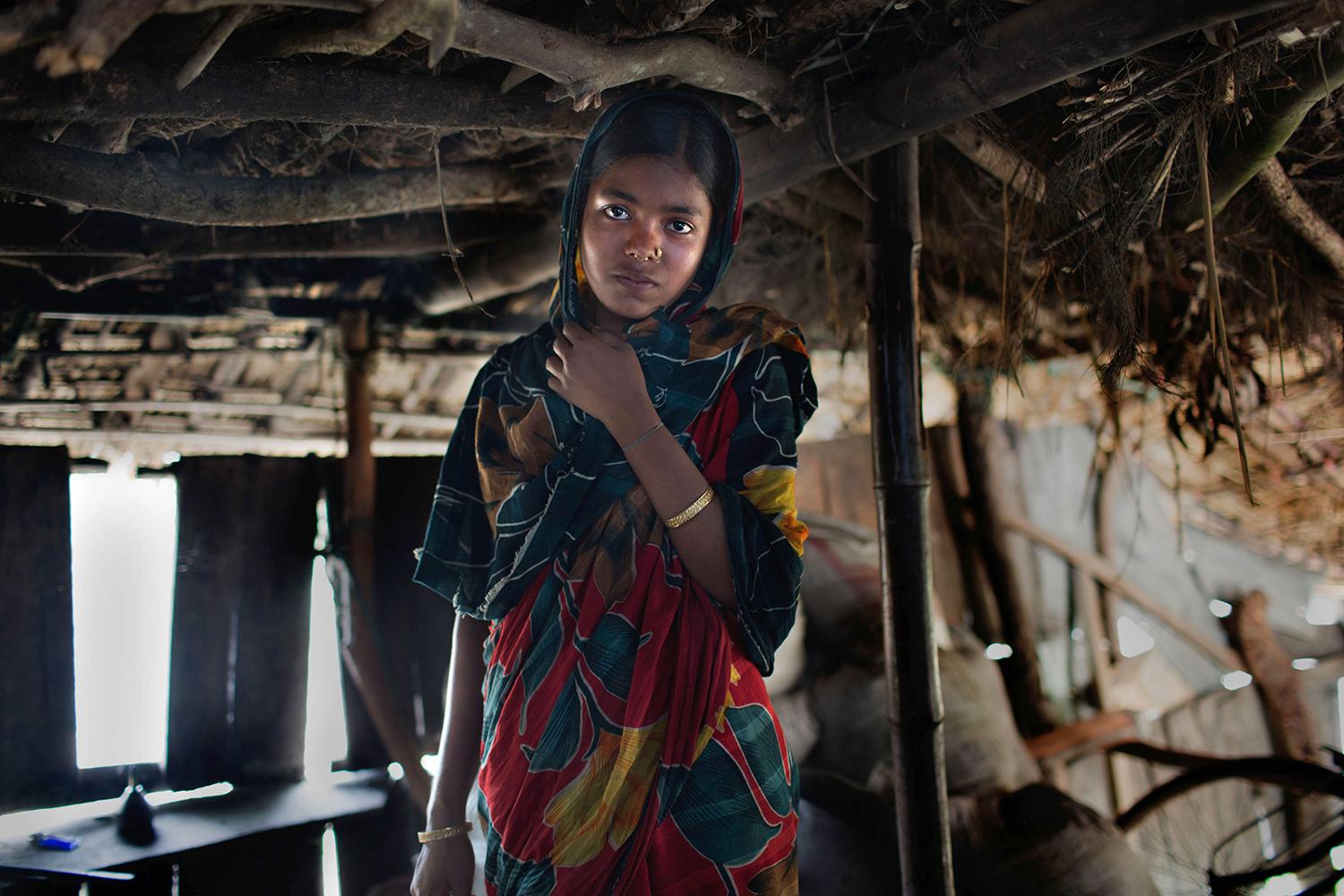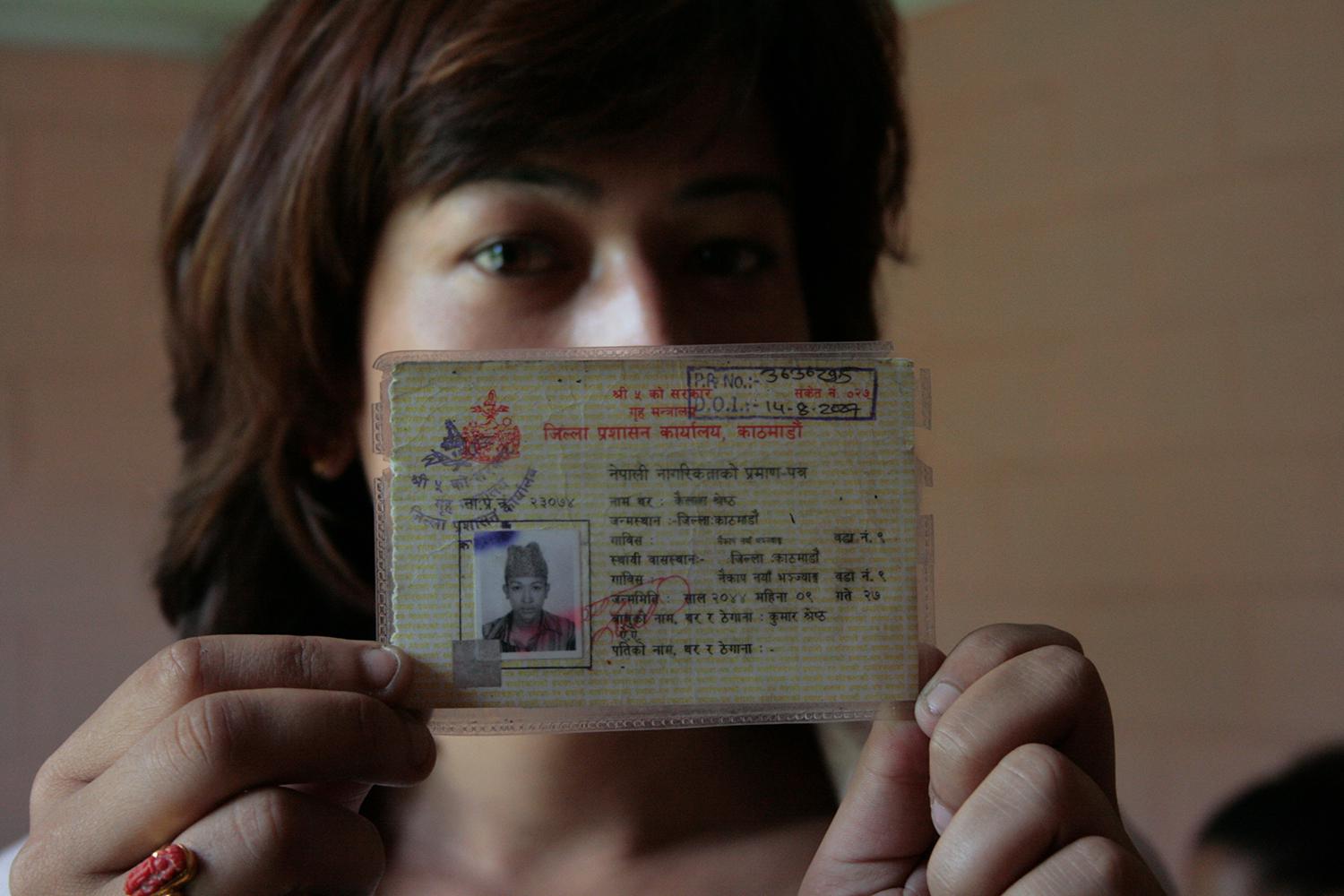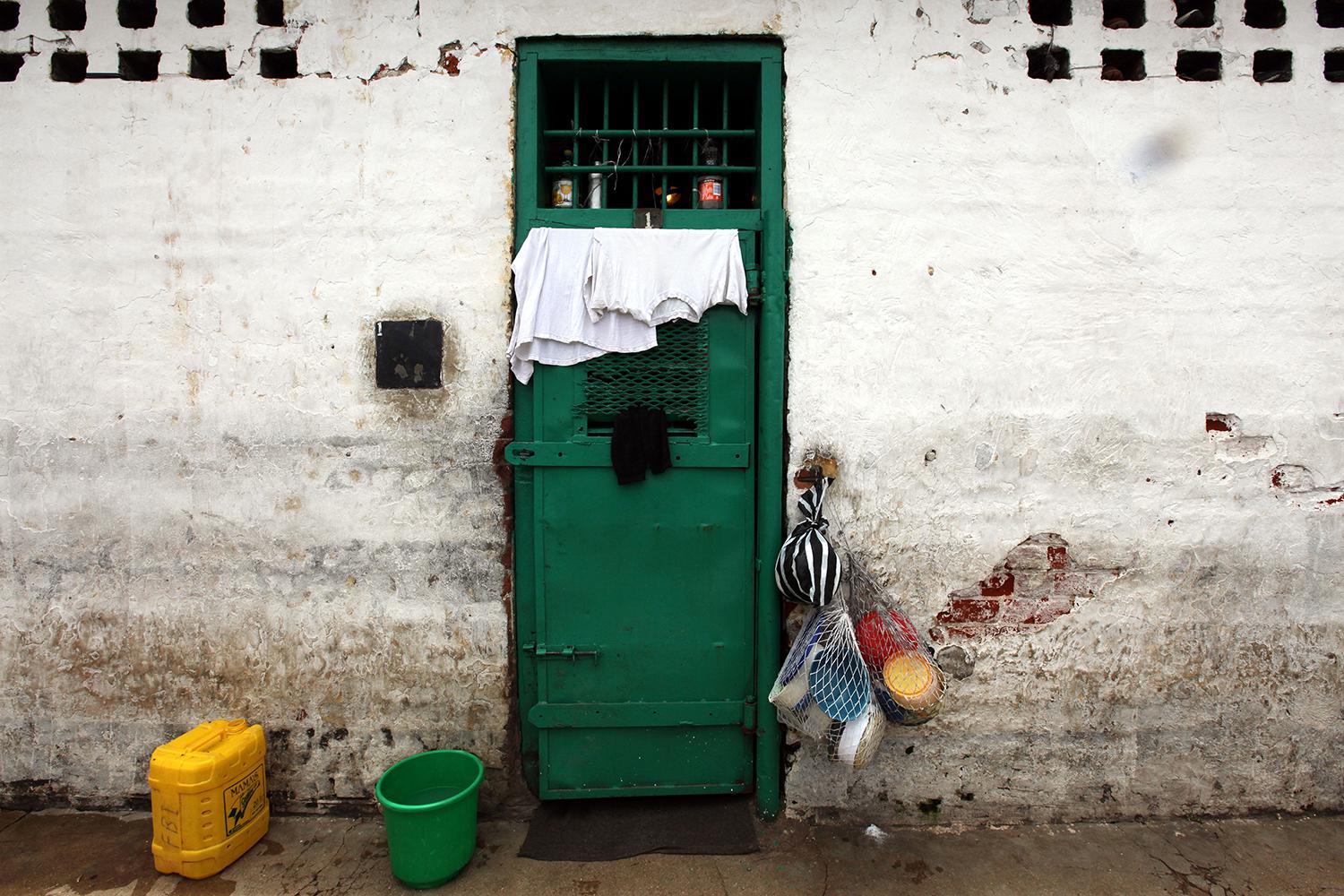Amid tenuous United Nations-led peace talks, Libya’s political and security crisis deepened as two rival governments competed for legitimacy, control of vital institutions, and international support. Despite some factions signing a political deal in December, there was no end in sight to the crisis. As armed clashes continued, the country edged towards a humanitarian crisis, with almost 400,000 people internally displaced and increasing disruption to basic services, such as power and fuel supplies.
Forces engaged in the conflict continued with impunity to arbitrarily detain, torture, unlawfully kill, indiscriminately attack, abduct and disappear, and forcefully displace people from their homes. The domestic criminal justice system collapsed in most parts of the country, exacerbating the human rights crisis.
Armed groups that pledged allegiance to the extremist group Islamic State (also known as ISIS) continued to commit serious human rights abuses, including unlawful killings and summary executions, and succeeded in expanding and gaining control over towns in the center of the country, including Sirte.
The widescale breakdown in law and order enabled tens of thousands of migrants, refugees, and asylum seekers to transit through Libya as they made their way towards Europe. In Libya, they faced violence, ill-treatment, and forced labor, while at least 3,100 died attempting to cross the Mediterranean in flimsy boats provided by networks of criminal people smugglers. Over 143,500 people arrived in Italy by boat from North Africa, the vast majority from Libya, between January 1 and end of November 2015.
Armed Conflicts and War Crimes
Armed conflicts continued to rage in the east, west, and south. In Benghazi, forces loyal to the internationally recognized government battled against a coalition of Islamist militias, including ISIS and Ansar al-Sharia. Some civilians remained trapped in the areas of fighting. In the west, forces allied with the self-declared government in Tripoli continued to clash with opposing groups based in western coastal areas. In the south, Tebu and Tuareg militias clashed intermittently.
Warring factions indiscriminately shelled civilian areas, arbitrarily seized people, tortured and looted, burned, and otherwise destroyed civilian property in attacks that in some cases amounted to war crimes. Some forces also used cluster munitions and antipersonnel landmines, which are internationally prohibited weapons.
Political Process
An UN-sponsored dialogue that spanned a year sought to achieve agreement on the formation of a government of national unity and an end to fighting.
In December, some factions signed a political agreement in Skheirat, Morocco, designating a prime minister and a presidential council with a view to establishing a national unity government, and the UN Security Council passed a resolution recognizing this new entity as the sole legitimate Libyan government. However, by December the new entiy was operating from Tunisia due to key factions in Libya opposing the deal. In November, Martin Kobler took over as chief UN negotiator and special representative of the secretary-general in Libya.
Those engaged in the dialogue included in the east, members of the internationally recognized government, the House of Representatives (HoR), Libyan National Army, and affiliated militias, and in the west, members of the rival Tripoli-based Government of National Unity, as well as the rump General National Congress (GNC) and a host of armed militias affiliated with the Libya Dawn alliance.
The talks centered on a power-sharing agreement that would see the HoR remain as the main legislative authority, alongside a consultative State Council formed from GNC members.
In practice, the rival authorities continued to operate parallel institutions from al-Bayda and Tripoli, effectively creating two separate administrations, with the former also creating its own national oil company, investment authority, and national bank.
In May, Abdullah al-Thinni, head of the internationally recognized government, said he survived an assassination attempt in eastern Libya.
In October, the HoR, the legislature of the internationally recognized government, voted to extend its term of office, which legally expired on October 21, without conducting new elections, leaving a possible constitutional vacuum.
Constitution and Legislation
Libya remains without a permanent constitution. The Constitution Drafting Assembly, elected in February 2014 to draft a new constitution, hampered by political infighting and a boycott by Amazigh groups, published a first draft in September 2015. Some political groups called for readopting the 1951 Constitution of the Libyan monarchy.
The HoR failed to amend the counterterrorism law that it adopted in September 2014, although several provisions could be used to curtail free speech and rights to peaceful assembly and movement. The law prescribes harsh punishments for vaguely defined acts “that harm national unity,” includes an overly broad definition of “terrorist acts,” and stipulates life imprisonment for establishing or leading a “terrorist organization” and 10 years with hard labor for joining a “terrorist organization,” without requiring any evidence of violence.
In July, the HoR passed a General Amnesty Law. It stipulates that those who commit crimes of terrorism, rape, torture, corruption, and murder by race or ethnicity may not receive an amnesty. However, it fails to rule out amnesties for other serious human rights crimes, such as forced displacement, enforced disappearances, and unlawful killings.
Arbitrary Detention, Torture, and Deaths in Custody
In what may amount to a crime against humanity, prison authorities and militias continued to arbitrarily detain thousands of Libyans and foreigners—including some held since 2011—without charges, trial, or due process rights, and ill-treat them in detention.
Human Rights Watch gained rare access in April to detainees in facilities controlled by the military and Interior and Justice ministries in eastern Libya and in September interviewed detainees in prisons run by the Justice Ministry of the self-proclaimed government in Tripoli and Misrata. Although conditions varied, in most facilities, detainees reported torture and other ill-treatment, and in some, deaths in custody caused by abuse.
In August, an online news site leaked video tapes in which officials and guards at al-Hadba Prison in Tripoli seemed to ill-treat several detainees, including al-Saadi Gaddafi, one of the sons of former leader Muammar Gaddafi. The General Prosecutor’s Office announced an investigation into the incident.
Criminal Justice System
The criminal justice system collapsed or was dysfunctional: in the east, there were no prosecutions or trials, and in Tripoli, the Supreme Court’s ability to exert judicial oversight and afford impartial remedy was threatened by the effective division between two rival authorities and deteriorating security conditions. ISIS-affiliated groups suspended the criminal justice system in the coastal city of Sirte and installed their own Islamic Court based on Sharia law.
International Justice and the International Criminal Court
Authorities failed to surrender Saif al-Islam Gaddafi to the International Criminal Court (ICC); he is wanted there for crimes against humanity related to the 2011 uprising that overthrew his father, Muammar.
The ICC prosecutor failed to open a new investigation into the grave and ongoing crimes within the court’s jurisdiction being committed in Libya.
Death Penalty
More than 30 articles of the penal code still provide for the death penalty. Since Gaddafi’s overthrow in 2011, civil and military courts around the country continued to impose death sentences. At time of writing, however, authorities had not carried out any judicial executions. The total number of people sentenced to death is unknown.
On July 28, Tripoli’s Court of Assize convicted 32 former Gaddafi officials on charges of alleged crimes committed during the 2011 uprising. The court sentenced Saif al-Islam Gaddafi in absentia and eight other defendants to death, including former intelligence chief Abdullah Sanussi, and former Gaddafi-era prime ministers, al-Baghdadi al-Mahmoudi and Abuzaid Dorda. Serious due process violations, including denial of access to legal counsel for defendants, undermined the trial. In September, Human Rights Watch gained rare access to al-Hadba detention facility in Tripoli and met with Sanussi, Dorda, al-Mahmoudi and another son of Gaddafi, al-Saadi.
Women’s Rights
The HoR failed to amend penal code provisions that deem sexual violence a crime against a woman’s “honor” rather than the woman herself. The code continues to permit a reduced sentence for a man who kills his wife or another female relative because he suspects her of extramarital sexual relations. Libyan law inadequately prohibits domestic violence.
Abductions and Enforced Disappearances
Militias and criminal groups throughout Libya continued to abduct and forcibly disappear hundreds of civilians, including civil society activists, politicians, and nongovernmental organization (NGO) workers with impunity.
According to the Libyan Red Crescent, at least 600 people went missing in such circumstances between February 2014 and April 2015. Those still missing in November 2015 included four Italian oil company workers abducted in western Libya in July 2015, Suliman Zubi, a former GNC member abducted by Zintan groups in July 2014, and Abdelmoez Banoon, a Tripoli-based activist who disappeared in July 2014.
Freedom of Speech and Expression
Armed groups continued to harass, attack, and kill journalists. Victims included Muftah Al-Qatrani, who worked for a media production company prior to his murder on April 21 in Benghazi. Some international journalists reported harassment by Tripoli authorities, including questioning over contents of reports and threats of expulsion.
The fate of Sofiane Chourabi and Nadhir Ktari, two Tunisian journalists who went missing in September 2014 while on assignment in Libya, remains unclear. Groups affiliated with ISIS claimed in April that they had killed both men.
In November, the NGO Reporters Without Borders (RSF) said there were 31 individual attacks against journalists in Libya in 2015. The NGO also said that Libya ranked 154 out of 180 countries on the 2015 press freedom index.
ISIS and Other Extremist Groups
ISIS-affiliated groups continued to commit serious rights abuses while extending their presence and control of territory within Libya. They remained present around Derna and in Benghazi in the east, in the Tripoli area in the west, and in the south, and took total control of Sirte and its environs.
In January, ISIS militants attacked a Tripoli hotel, killing at least 12 people, mostly civilians, including foreign nationals. They also claimed responsibility for attacks on the Iranian ambassador’s residence and the embassies of Algeria, Morocco, and South Korea. In September, ISIS-affiliated groups attacked a militia-run prison within the Mitiga airbase in Tripoli, which resulted in the reported deaths of at least three prison guards.
In Derna, ISIS militants maintained a reign of terror from January until June marked by public lashings and summary, extrajudicial executions of residents who opposed them, as well as at least four LGBT men. On February 20, ISIS said it carried out car bomb attacks in al-Qubba, a town near Derna, which killed at least 45 people, mostly civilians. In June, the Derna Mujahideen Shura Council (DMSC), an Al-Qaeda affiliated militia, forced ISIS militants to withdraw from Derna’s center, but in November armed clashes continued. In October, ISIS militants killed one man after forcing him to dig his own grave, and killed another by dragging him through streets.
ISIS militants took control of Sirte and the nearby villages of Harawa and Nawfaliyah, and in February 2015, issued a video showing them beheading 21 mostly Egyptian Copts in Sirte. Another ISIS video issued in April appeared to show the killing of at least 30 Ethiopian Christians in separate incidents in Sirte and southern Libya. In August, ISIS militants established a public administration and an Islamic Court in Sirte. Armed clashes between local residents and ISIS-affiliated groups resulted in at least 29 reported deaths, mostly fighters but also some civilians.
In October, masked members of ISIS publicly beheaded two men accused of sorcery, and crucified an elderly Sufi Sheikh.
Internally Displaced People
The local council of Misrata and affiliated militias continued to prevent 40,000 residents of Tawergha and residents of Tomina and Karareem from returning to their homes in what amounts to a crime against humanity, and collective punishment for crimes they say were committed by some Tawergha residents during the 2011 revolution. Those displaced remained scattered in makeshift camps and private housing around the country, but continued to face harassment and arbitrary detention. Libyan authorities failed to end this ongoing crime, while perpetrators continued to benefit from impunity since 2011.
According to the United Nations, around 400,000 people remained internally displaced due to the ongoing armed hostilities in all parts of the country, which forced them to leave their homes.
Migrants, Refugees, and Asylum Seekers
Significant numbers of refugees, asylum seekers, and migrants reached Europe from Libya by sea in 2015. Over 143,500 arrived in Italy from North Africa, the vast majority from Libya, by the end of November. However, at least 3,100 others perished at sea during the same period. In May, the European Union significantly increased search and rescue missions in the central Mediterranean.
Libya’s remaining active coast guard provided only limited search and rescue operations, citing a lack of resources.
The Directorate for Combatting Illegal Migration continued to detain asylum seekers and migrants found without official residence documents and hold them in inhumane conditions, where prison guards abused and ill-treated them with impunity and they lacked access to medical care.
Criminal smuggler networks also abused migrants and asylum seekers and subjected them to forced labor.
Key International Actors
The UN, the United States, EU states, and Egypt, Qatar, Saudi Arabia, Turkey, and the United Arab Emirates (UAE), all played significant roles in the Libya conflict. The US, United Kingdom, and France issued several statements supporting the UN-led peace initiative.
In February, Egyptian warplanes carried out air strikes against purported ISIS targets in the eastern city of Derna, in retaliation for the alleged killings of 21 mostly Egyptian Coptic Christians by ISIS militants, killing at least seven civilians. In June, the US conducted airstrikes in the eastern city of Ajdabiya in an attempt to kill Mokhtar Belmokhtar, an Al-Qaeda operative. At time of writing, Belmokhtar’s death remained unconfirmed.
In March, the UN Human Rights Council agreed to begin an investigation by the Office of the High Commissioner for Human Rights (OHCHR) into ongoing rights abuses in Libya since January 1, 2014 (OIOL).
The first OIOL oral update in September said violations included attacks on civilians and civilian objects, reprisals in the form of destruction of homes, shelling of hospitals, unlawful killings, arbitrary detention, torture, and other ill-treatment, in some cases leading to death. The report also mentioned abductions based on origin and abduction of activists and journalists. It said refugees and asylum seekers remained vulnerable to abuses.
The UN Security Council renewed the mandates of the UN Support Mission in Libya (UNSMIL) and the Panel of Experts on Libya in March, and reaffirmed the international arms embargo on Libya, despite efforts by Libya and Egypt to overturn it. In July, Russia and China vetoed a council resolution that would have imposed sanctions on two individuals for obstructing the UN peace talks.
In May, the EU approved the establishment of EU NAVFOR MED, an air and sea operation empowered to use force against people smuggling networks in Libya. In October, the EU announced that the renamed “Operation Sophia” entered its second phase where it would “conduct boarding, search, seizure and diversion, on the high seas, of vessels suspected of being used for human smuggling or trafficking.”
In November, leaked communication alleged the UAE had violated the existing arms
